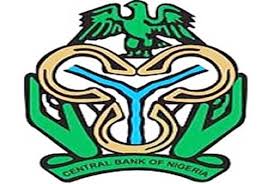The Central Bank of Nigeria (CBN) has extended the tenure of Chief Executive Officers (CEOs) of commercial banks in the country by two years.
The bank also says approval is needed by Financial Holding Companies (FHC), its director, shareholder or agent to increase shareholding to five per cent or more in the FHC as well as transfer of shareholding of five per cent and above in the FHC.
This is contained in a circular signed by Director, Financial Policy and Regulations Department, CBN, Chibuzo Efobi, announcing a new Code of Corporate Governance for financial institutions on Friday.
In February 2023, the bank said that executives of banks could only serve a cumulative tenure of 20 years across the banking sector.
But in the recent circular, CBN said the new rules would replace all previous codes, circulars, and related orders on corporate governance.
Before now, chief executives of financial institutions were allowed to remain in office for a maximum of 10 years. But to strengthen management and corporate governance among lenders, the apex bank extended the tenure of CEOs by two years, noting that this will take effect from August 1.
The Financial Reporting Council (FRC) of Nigeria in 2019 issued the Nigerian Code of Corporate Governance (NCCG 2018) as the single Corporate Governance Code for the country.
NCCG 2018 replaced all sectoral codes in Nigeria including the extant Code of Corporate Governance for Banks and Discount Houses in Nigeria issued by the Central Bank of Nigeria (CBN) in May 2014.
According to the circular, following the pronouncement of the FRC, for sector regulators to issue sector-specific guidelines on corporate governance for institutions under their regulatory purview, the CBN has adapted the Principles and Recommended Practices of NCCG 2018 in developing the Guidelines for Commercial, Merchant, Non-Interest and Payment Service Banks, taking into account the peculiarities of the sub-sectors.
As stated in the new NCCG, the tenure of a Deputy Managing Director/Executive Director (DMD/ED) of a bank shall be in accordance with the terms of engagement with the bank but subject to a maximum period of 12 years.
It noted further that, “where an ED becomes a DMD, a cumulative tenure of 12 years applies and shall not be extended.
“Where a DMD/ED becomes an MD/CEO of the same bank, his/her previous tenure as DMD/ED is not included in computing his/her tenure as MD/CEO. However, this is subject to a cumulative tenure limit as stated in Section 8 of this Guidelines.
“Where a bank is a member of a Financial Holding Company (FHC), the chairman of the bank shall not sit on the board of the FHC in any capacity and vice versa.
“An executive (ED, DMD or MD/CEO) who exits from the board of a bank either upon or prior to the expiration of his/her maximum tenure, shall serve out a cooling period of two years before being eligible for appointment as a NED in the same bank, subject to applicable cumulative tenure limits.”
The apex bank further directed that where an executive (ED, DMD or MD/CEO) of a bank is appointed to the board of its FHC in any role, a cooling-off period of two years shall apply.
The cumulative tenure limit of directors (ED, DMD, MD and NEDs) on the board of the same bank is 24 years, while the cumulative period is calculated from the date of first appointment to the board of the bank.
The Central Bank also said that transmutation of an Independent Non-Executive Director (INED) or an Advisory Committee of Experts (ACE in the case of an NIB) into any role in the same bank is not permitted.
A NED shall serve out a cooling period of two years before being eligible for appointment in any executive role in the same bank.
The tenure of auditors in a bank shall be a maximum period of 10 consecutive years, subject to the rotation of audit engagement partner at least once every five years, the guidelines indicated.
For an audit firm to be reappointed by the same bank, a cooling-off period of 10 consecutive years shall be observed.
On the issue of protection of shareholders rights, the circular noted that except where prior approval of the CBN is granted, no individual, group of individuals, their proxies or corporate entities shall own controlling interest in more than one FHC.
“Except with the prior written approval of the CBN, no FHC or any of its director, shareholder or agent shall enter into an agreement which results in: a change in the control of the FHC, the transfer of shareholding of five percent and above in the FHC; and/or an increase in shareholding to five per cent or more in the FHC.
“Provided that CBN’s prior approval and no objection shall be sought and obtained, before any acquisition of shares of an FHC by an investor (including through the capital market), that would result in equity holding of five per cent and above.”
The CBN said all these are in exercise of powers conferred by the Central Bank of Nigeria (CBN) Act 2007 and the Banks and Other Financial Institutions Act 2020.
In developing these guidelines, the CBN adapted relevant principles and recommended practices of the Nigerian Code of Corporate Governance issued by the Financial Reporting Council in 2018, global corporate governance practices as well as other related governance codes, circulars and directives made by the CBN.
Banks and financial holding companies are therefore invited to note the responsibilities imposed on their boards by these guidelines and especially on the Executive Compliance Officers (where applicable).
These guidelines supersede all previous codes, circulars and related directives on corporate governance issued by the CBN.


